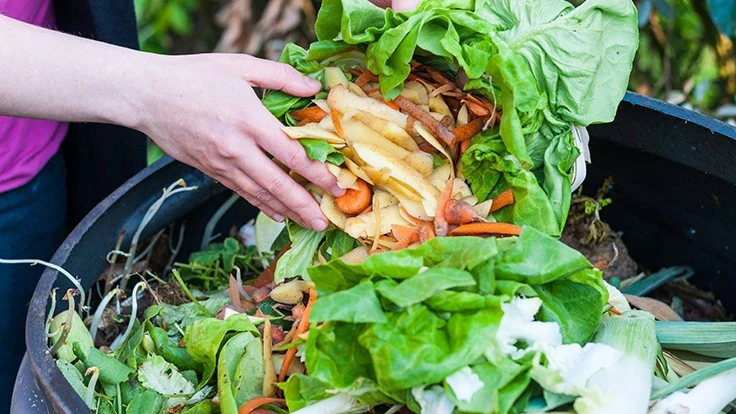
Food and organic waste are major areas of priority in the new Farm Bill, which recently passed Congress and is expected to be signed into law within the next couple weeks. The bill allocates nearly $867 billion to food and agriculture programs, including crop subsidies and support to growers seeking access to export markets.
The bill includes $25 million in annual funding for the U.S. Department of Agriculture (USDA) to divert food waste from landfills by developing, testing and implementing strategies to establish municipal compost and food waste reduction plans in at least 10 states through 2023. The funding will also go toward the USDA establishing a “food loss and waste reduction liaison” for interagency collaboration on existing programs to focus on initiatives at the national level. Multiple provisions in the bill are aimed at reducing food waste at the farm level and expanding donation liability protections as well.
The biogas industry is also receiving funding toward new initiatives. Biogas systems recycle organic material like food and yard waste, sewage sludge and animal manure, producing renewable energy and valuable soil products. Annual funding of $1 million is included for a carbon utilization and biogas education program that will explore agricultural opportunities of diverting multiple sources of organic waste into a single biogas system. The bill also includes plans for an “interagency biogas opportunities task force" that will focus on growing biogas systems through research, policies and programs.
In response to the passage of the bill, the American Biogas Council (ABC), the trade association for the US biogas industry, released a statement applauding Congress for the bipartisan bill and its inclusion of mandatory funding to “many programs” in the biogas industry. However, the statement expressed disappointment for the programs that did not receive funding.
“We remain disappointed that other programs that support our industry, such as Biomass Crop Assistance Program (BCAP) and the Biomass Research and Development Initiative (BRDI), were only reauthorized and did not receive mandatory funding. We hope to address these deficiencies in the 116th Congress. We also look to ensure that REAP receives a much-needed Reserve Fund for underserved technologies.
“Finally, we would like to particularly thank the efforts of Senators Michael Bennet (Colorado) and Sheldon Whitehouse (Rhode Island). Together they introduced the Carbon Utilization Act of 2018 and worked to include important parts of the final farm bill package. Through their efforts, the conference report contains language directing USDA, [the U.S. Department of Energy] and [the U.S. Environmental Protection Agency] to establish an Interagency Biogas Task Force building upon the existing Biogas Opportunities Working Group. The task force is directed to coordinate policies and programs to accelerate biogas research and investments into biogas systems … The ABC is very pleased about these provisions and grateful for the senators’ focus on biogas in the 2018 Farm Bill, as they will help catalyze private investment, create jobs and accelerate the growth of the biogas industry.”
Latest from Waste Today
- Sourgum launches services in Mississippi
- CenterPoint Energy invests in RNG made from Minnesota food waste
- Brightmark, Lewis Salvage partnership processes 1M pounds of medical plastics
- Eco Waste Solutions will deliver waste disposal system to US Air Force
- Teaching kids the value of recycling
- GreenWaste appoints CEO
- CHaRM facility opens in Fairhope, Alabama
- Liebherr to exhibit at upcoming IRPT event





